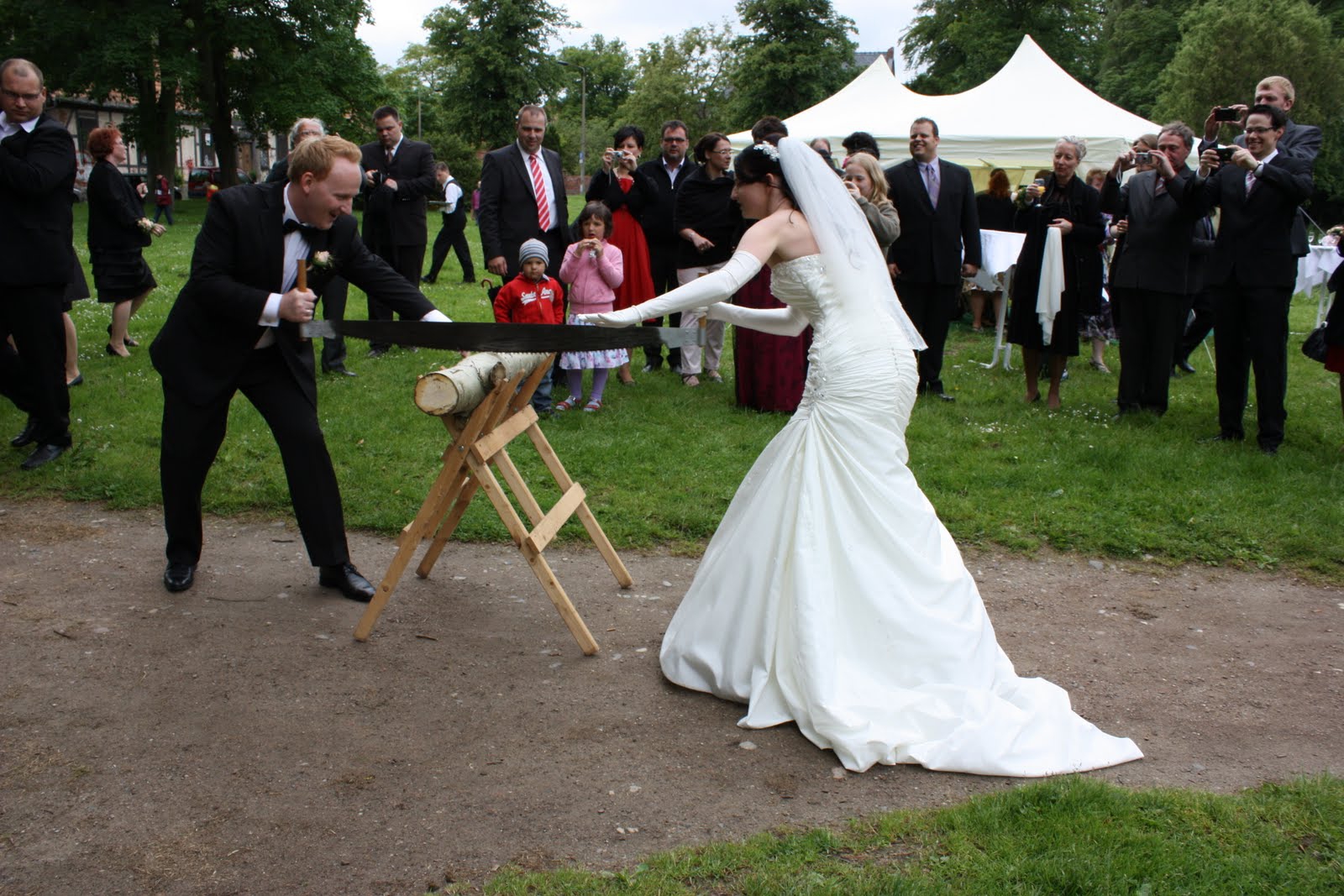Whether it's to honor your German heritage or simply to choose a venue that sets your wedding apart from the norm, if you're considering holding a destination wedding in Germany, there are some considerations you need to take into account.
Wedding Traditions in Germany
 Planning a destination wedding in Germany can be a challenge, but by being an information hound, you can gather the facts you need to pull it off without a hitch.
Planning a destination wedding in Germany can be a challenge, but by being an information hound, you can gather the facts you need to pull it off without a hitch.
Marriage License
In order to hold a wedding ceremony in Germany, you first have to apply for and receive a marriage license.
In order to obtain the marriage license, you have to contact the German Consulate (www.germany.info). To complete the marriage license application, the bride and groom will both have to provide a valid passport and copies of an original or certified birth certificate.
If the bride or groom has been married before, Germany also requires proof of a divorce (divorce decree) or death (death certificate).
A blood test and medical certificate may also be required. Germany requires you to apply for the marriage license at least six weeks before the ceremony takes place, so make sure to work in some extra time for delays when applying for your marriage license.
Venue
The wedding ceremony venue options range from a city hall civil ceremony to some of the top resorts in the country.
Some of the most popular cities, rich with history and culture, that brides and grooms choose for their destination wedding in Germany include Munich, Dusseldorf and Berlin.
These cities provide art masterpieces that make perfect backdrops for ceremonies and receptions as well as activities for wedding guests to enjoy in their downtime such as musical performances and local German cuisine.
The Bavarian Alps and the Black Forest offer a myriad of venue choices, including one of the top ski resorts, Garmish.
Garmish and the other resorts in the mountains include wedding ceremony and reception venues as well as accommodations for guests that range from cabins to chalets. Bavaria offers castles, baroque churches, the Black Forest and the Danube River as wedding venue opportunities.
Heidelberg's Castle is another option that is close to the mineral hot springs of Aachen or Baden. For a vineyard wedding, brides and grooms can opt for a wedding in Freiburg or for a medieval style wedding, Regenburg on the Danube may be the right spot in Germany.
Traditions
If you're looking to add traditional German wedding customs to your ceremony and reception, there are several German wedding customs you can incorporate into your event.
It is customary for friends and family members of the bride and groom to bring old porcelain and glassware (kitchen accessories) to the couple a week or so before the wedding.
The porcelain and glassware is thrown on the ground in front of the couple, which is to wish the couple a happy and lucky life together.
The porcelain and glass breaking event is called Polterabend, which translates to mean the evening of broken porcelain.
After the Polterabend, a casual party is thrown and typically goes into the wee hours of the night.
Another popular wedding tradition is to have the bride's furniture transported to her new home in a cart with a driver and accompanied by musicians.
At the threshold of the couple's new home, the groom greets the bride with a jug of beer and the bride gives the groom a shirt sewn by her, a pair of shoes and a key that unlocks her bridal chest.